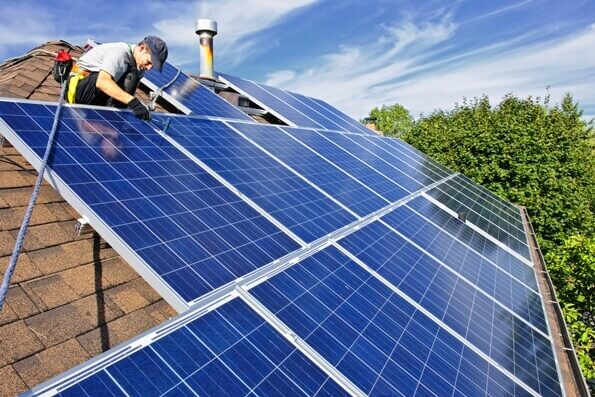Top Recommended Solar Companies
- 1,128 Companies analyzed
- 45,429 Reviews Real customer reviews
Per the United States Department of Energy, the average cost of solar panels has dropped by more than 70 percent since 2014. Meanwhile, job growth in the solar industry has risen by more than 160 percent in that same time. That means solar power has never been more accessible nor affordable than it is right now!
Last updated January 1, 2026

Why You Can Trust Our Recommendations
1,128
Solar companies analyzed
45,429+
Real customer reviews gathered
300+ Hours of expert research conducted
$200 Guarantee
Not satisfied after 30 days? We'll pay you $200 Learn more about our guarantee
- Multi-Award Winning & Top-Rated National Installer
- Industry-Leading 25-year Warranty
- Serving California, Nevada, Arizona and Florida
- NABCEP Certified
- 25-Year Workmanship and Product Warranty
- Known for Top Quality and High Efficiency
- Special Discounts on Solar Upgrades
- Low-interest loans with flexible repayment terms
- 25-year system warranty on panels and labor
- No Longer in Business
- Full, Hands-Free 25-Year Warranty
- Free, No Commitment Consultation
- Special Rebates for Solar System Purchases
- Zero-down financing, long-term loan options
- 25-year product and labor warranty
- $0 Down and 18 Months Free Solar Power
- $0 down payment and flexible loan options
- 25-year manufacturer’s warranty on panels
- Special Solar Plans with Savings on Installation
- Provides flexible solar leases for lower upfront costs
- 25-year warranty covering panels and installation
- Special Upgrade Packages Available
- Technology-driven: Cutting-edge solar panels with high efficiency
- 25-year warranty on solar panels and labor
- First Month Free for New Customers
- Specializes in solar-powered energy storage systems
- · 25-year performance warranty on panels and labor.
- Buy and Loan Options Available
- Available in 1 State
- 25-Year Warranty
Not finding a good match? See companies ranked by overall score.
Why should you consider solar energy?
Not only is solar energy good for the environment, it can also help you save money on your monthly utility bill. Most residential solar users see anywhere between 20 and 30 percent savings on their electricity when they make the switch to solar power. And the savings don’t stop there; homeowners who purchase a solar panel system also receive federal and, where applicable, state tax incentives and rebates. While the savings are the same, every solar company is different in terms of expertise, equipment, and available financing options. That’s where we come in!
How did we determine which solar companies to recommend?
We analyzed over 35,000 real customer reviews across 1,000+ solar companies to determine the top four solar companies we recommend. According to customer reviews, these companies have demonstrated a high level of trustworthiness and exceptional customer service. If you want to go solar, we are confident that our recommendations represent the best companies in the industry.









